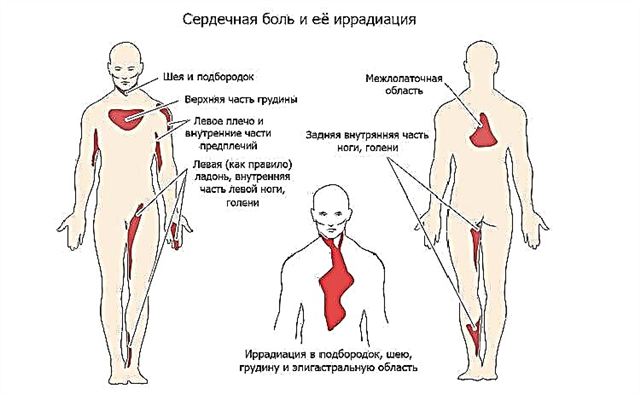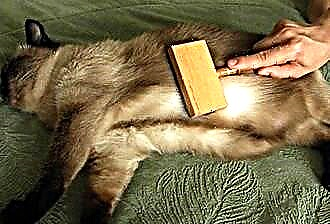A runny nose is accompanied by the appearance of not only local symptoms, but general symptoms. Lack of nasal breathing makes communication difficult, reduces performance and interferes with sleep. As a result of this, a person becomes irritable and inadequately responds to environmental factors. Today, vasoconstrictor nasal drops are widely used. They quickly facilitate breathing through the nose and retain the healing effect for up to 12 hours.
The mechanism of action of the drugs is as follows. After instillation of the nasal passages:
- the active substance of the drug is absorbed into the mucous membrane, penetrates into the blood vessels;
- the drug interacts with the adrenergic receptors of the vascular wall;
- vasospasm is observed, that is, the diameter of the vessels decreases;
- swelling of tissues decreases;
- the volume of mucous secretions decreases;
- nasal congestion is eliminated;
- the degree of tissue hyperemia decreases;
- the patency of the nasal passages for air is restored;
- facilitates nasal breathing.
Preparations for the common cold can be produced in the form of a solution for drip administration or in the form of an aerosol. All drugs are based on active substances such as phenylephrine, xylometazoline, tramazoline, oxymetazoline, naphazoline.
Phenylephrine medications
 In medical practice, phenylephrine is used for systemic action (increasing blood pressure), as well as topically. To combat nasal congestion, solutions of 0.25-0.5% are usually used. They are quite effective and approved for use in children. The duration of the therapeutic effect lasts up to 3-4 hours.
In medical practice, phenylephrine is used for systemic action (increasing blood pressure), as well as topically. To combat nasal congestion, solutions of 0.25-0.5% are usually used. They are quite effective and approved for use in children. The duration of the therapeutic effect lasts up to 3-4 hours.
This group of drugs includes Vibrocil, Nazol baby, Rinza, Adrianol, Polydexa.
Vibrocil
The drug is widely used in otolaryngology, including in childhood. It does not disrupt the functioning of the cilia of the epithelium, does not irritate the mucous membrane. It also contains an antihistamine component, which makes it possible to prescribe it for allergic rhinitis.
Vibrocil is instilled into the nose for otitis media to reduce tissue swelling and restore ventilation in the ear cavities. It is used 2-4 drops up to 4 times a day.
Among the contraindications, it is worth highlighting:
- atrophic type of rhinitis;
- taking antidepressants;
- age up to 2 years;
- glaucoma.
Caution must be observed in the treatment of people with severe hypertension, epilepsy, diabetes mellitus, prostatic hypertrophy and hyperfunction of the thyroid gland. Exceeding the recommended doses increases the risk of tremors, insomnia, increased blood pressure and cardiac arrhythmias.
Nazol baby
Nasal drops are prescribed for children under six years of age. The solution should be dripped 1-2 drops three times a day. The medicine acts quickly, the effect occurs 3 minutes after the instillation of the nasal passages. Thanks to glycerin, which is part of the solution, a moisturizing effect is provided. Nazol baby does not irritate the mucous membrane, therefore it rarely causes local side reactions.
Contraindications include:
- individual sensitivity to components;
- diabetes;
- atrophic changes in the mucous membrane;
- thyrotoxicosis.
Among the side reactions, burning sensations, dryness in the nasopharynx, nausea, flushing of the skin of the face and dizziness should be distinguished.
Polydexa
Combination medications can be used to treat bacterial rhinitis, such as Polydexa. Its vasoconstrictor properties are due to the presence of phenylephrine. In addition, the composition includes a hormonal substance (dexamethasone), due to which the severity of inflammation and tissue edema decreases.
Antimicrobial action is provided by polymyxin B, neomycin, which sanitize the infectious focus. For a common cold, the use of Polydex spray is not recommended, since there is no need to fight germs.
With the abuse of antimicrobial drugs for nasal administration, the composition of the flora of the nasopharynx may change.
The drug is available in the form of an aerosol. Contraindications include:
- hypersensitivity to components;
- subcompensated renal insufficiency;
- glaucoma;
- the active phase of a viral disease;
- age up to 15 years.
The spray should be used with caution in angina pectoris, thyrotoxicosis, severe hypertension, cardiac arrhythmias. It is important for athletes to know that a drug can test positive for doping.
Side effects are sneezing, skin rashes and burning sensations.
Oxymetazoline based medicines
To date, vasoconstrictor nasal drops based on oxymetazoline are the most in demand. Their effect lasts up to 12 hours after the instillation of the nasal passages.
Vasoconstrictor drugs of this group are often prescribed to children. Depending on the concentration of the active substance, there are restrictions on the age of the child. A solution of 0.025% is prescribed until the age of six, and with a concentration of 0.05% - at an older age.
Among the popular drugs, we highlight Nazol, Nesopin, Afrin, Fazin, Knoxprey. The names of drugs may be different, but they are united by one active ingredient - oxymetazoline.
When administered intranasally, the drops have a decongestant effect, reduce rhinorrhea and restore the patency of the nasal passages for air.
Among the indications for the appointment of oxymetazoline, it is worth highlighting:
- colds that are accompanied by nasal congestion;
- inflammation of the mucous membrane of the paranasal sinuses;
- eustachitis, when the inflammatory process covers the auditory tube;
- hay fever;
- allergic rhinitis (year-round);
- diseases of the lacrimal apparatus.

Contraindications include individual intolerance to the components of the medicinal solution, atrophic type of rhinitis. Adverse reactions are quite rare, but they must be remembered. After instillation of the nasal passages, temporary dryness, burning, itching sensations in the nasopharynx area, as well as frequent sneezing, may occur. These symptoms go away on their own and do not require intervention.
Let's take a closer look at Nazivin.
If an allergy to oxymetazoline develops, congestion, rhinorrhea, skin rash, facial flushing and coughing may appear.
A vasoconstrictor drug can be prescribed for infants. Its effect develops after 2 minutes, after which it lasts for 10 hours, so it is advisable to bury the nasal passages before bedtime.
The solution should be used in a few drops (depending on age) twice a day. Among the contraindications, attention should be focused on:
- individual intolerance to the constituents of the solution;
- severe violations of the cardiac rhythm;
- hyperfunction of the thyroid gland;
- renal insufficiency;
- hepatitis;
- glaucoma;
- uncontrolled hypertension;
- atrophic type of rhinitis.
Nazivin is available in the form of a spray and solution for drip use.
Ximetazoline preparations
The main active ingredient is ximetazoline, which ensures the preservation of vasospasm for 6-8 hours. The drugs are widely used for adults with allergic, vasomotor, infectious rhinitis. Often, patients choose a spray because it is more convenient to use.
List of medicines with ximetazoline:
 Galazolin;
Galazolin;- Rhinorus;
- Xilen;
- Snoop;
- Otrivin;
- Meralis;
- Xylo Mefa;
- Tizin Xylo;
- Rinostop;
- Xymelin.
A medicinal solution with a concentration of 0.05% can be used at one year of age.As for the 0.1% concentration, the spray is recommended to be prescribed from the age of six.
Regardless of the composition of the vasoconstrictor drops, exceeding the 7-day treatment course is accompanied by complications. They are represented by drying out of the mucous membrane and addiction.
Xilen
The drug has an effect of medium duration (up to 8 hours). The solution is available in different concentrations. Absorption of the drug into the general bloodstream is practically not observed, therefore systemic reactions occur only with an overdose.
Among the contraindications should be highlighted:
- individual intolerance to the components of the drug;
- severe atherosclerotic vascular disease;
- uncontrolled hypertension;
- atrophic changes in the mucous membrane;
- glaucoma;
- violation of the cardiac rhythm.
Also, restrictions in use apply to people with diabetes mellitus, angina pectoris, prostate hypertrophy, thyrotoxicosis. Nasal drops can be used two or three times a day.
If the recommended doses are exceeded, sneezing, dryness of the mucous membrane, soreness in the nasal passages may occur. Long-term use of a vasoconstrictor drug may be accompanied by insomnia, visual dysfunction, cardiac rhythm disturbances, headache, nausea and psychoemotional disorders.
Otrivin
The medicinal solution can be used as a spray or nasal drops. Three minutes after the instillation of the nasal passages, relief of breathing and a decrease in nasal congestion are observed.
In addition to the main active ingredient, it contains substances that moisturize the mucous membrane. They also protect her from irritating environmental factors.
The drug is prescribed for therapeutic purposes in various forms of rhinitis (except for atrophic), sinusitis, otitis media, as well as before a diagnostic examination of the nose (rhinoscopy).
Nasal vasoconstrictors such as Otrivin can cause the following side effects:
- burning, itching, dryness in the nasopharynx;
- headache;
- nausea;
- tachycardia;
- arterial hypertension;
- tremor;
- insomnia.
Tizine-Xylo
The drug has a therapeutic effect 7 minutes after the instillation of the nasal passages. It is not prescribed for atrophic changes in the mucous membrane and individual intolerance to the components of the medication.
The group of side effects should include:
- burning sensations, hyperemia of the nasal mucosa;
- insomnia;
- rapid fatigue;
- cardiopalmus;
- arterial hypertension;
- headache.
Medicinal solutions with tramazoline
Preparations of this composition have a vasoconstrictor effect of medium duration. The most commonly prescribed are Rinosprey, Adrianol and Lazolnazal plus.
Adrianol is the only tramazoline-based medicine used in infants.
Adrianol contains phenylephrine, tramazoline, which is considered a very effective combination in the fight against the common cold. The drug is not prescribed for:
- thyrotoxicosis and other diseases of the thyroid gland, which are accompanied by increased production of hormones;
- pheochromocytoma (tumors of the adrenal glands);
- severe renal insufficiency;
- glaucoma.
It is rare to notice adverse reactions after instillation of the nasal passages. They are represented by local symptoms in the form of burning, dryness and itching.
Active ingredient - naphazoline
This group includes medicines with a short action not exceeding 4 hours. In this regard, a person has to bury his nose more often, which increases the risk of developing addiction.
Some drugs retain vasospasm for 6 hours, and the clinical effect disappears within 4 hours after instillation. As a result, the patient re-instills the nose to facilitate nasal breathing. The medicinal solution, penetrating to the blood vessels, additionally spasms them, which ultimately reduces the sensitivity of the receptors of the vascular wall to the action of the drug. Thus, addiction develops.
Naftizin and Sanorin are prominent representatives of this group. The first drug acts aggressively on the mucous membrane and irritates it. As a result, the tissues quickly atrophy, and the symptoms of rhinitis are aggravated. In addition, local vessels become more fragile, so nasal bleeding is often observed.
 Exceeding the recommended doses can lead to:
Exceeding the recommended doses can lead to:
- increased blood pressure;
- an increase in cardiac contractions;
- the appearance of depression;
- insomnia;
- headache;
- nausea.
Naftizin
The drug quickly causes vasospasm, as a result of which the patency of the nasal passages is restored. After nasal instillation, a burning sensation, dryness of the nasopharynx may appear.
The drug is not prescribed for pregnant women, during the lactation period, as it has a large number of adverse reactions, including systemic action.
The use of Naphthyzine today is considered irrational, since there are more effective drops with a lower risk of complications.
Sanorin with eucalyptus oil
Due to the presence of eucalyptus oil in the composition of the preparation, additional protection of the nasal mucosa from irritating factors is provided, and the process of tissue regeneration is also accelerated.
The medicinal solution is not prescribed until the age of 15. Among the side reactions, it is worth highlighting:
- burning sensations, dryness in the nasal passages;
- increased congestion;
- change in the psycho-emotional state (irritability);
- headache;
- tremor;
- severe discomfort;
- nausea;
- increased blood pressure;
- violation of the cardiac rhythm.
Each of the drugs in the group of vasoconstrictors has a certain number of adverse reactions, contraindications, which limits their use in a child, a pregnant woman and people with severe systemic diseases.
Homeopathic and herbal remedies can be used if desired. You can prepare them yourself or purchase a ready-made drug at a pharmacy (Pinosol, Delufen). The process of preparing a medicinal product is a rather difficult and painstaking work with strict adherence to technology and dosage, so it is better to entrust it to professionals.


 Galazolin;
Galazolin;

